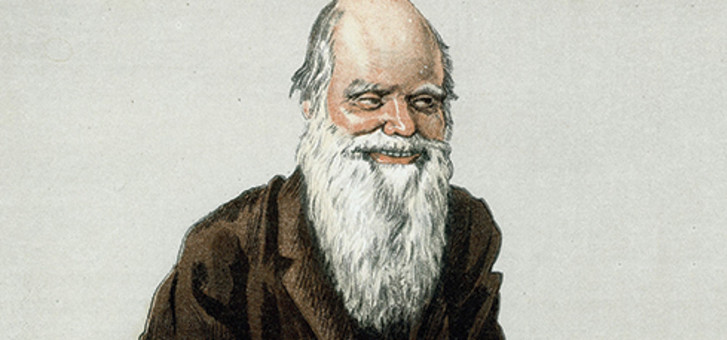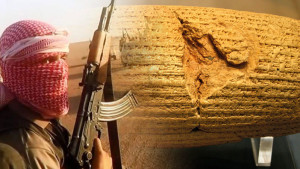Even the best of people have had their doubts at times. Thomas is probably one of the most famous, when he emphatically told his fellow disciples that he would not believe their story about seeing Jesus alive again unless he had personal, physical evidence that it really was the same Person he had seen crucified who was alive again. We can sympathise with Thomas because it's sometimes hard to believe someone else’s testimony, particularly when it goes beyond the experiences that we have had.
It becomes even more fascinating when a person has doubts about their own ideas and theories. In 1859, Charles Darwin published a book called On the Origin of Species in which he developed his theory of evolution that all living organisms had evolved from a common ancestor through the process of natural selection. In 1881, however, Darwin wrote a letter to William Graham in which he revealed his own doubts whether he could trust our ability to think, if we had evolved from animals:
But then with me the horrid doubt always arises whether the convictions of man's mind, which has been developed from the mind of the lower animals, are of any value or at all trustworthy. Would anyone trust in the convictions of a monkey's mind, if there are any convictions in such a mind?1
Darwin clearly saw that we cannot be confident that unguided evolution can produce intelligent minds that are able to generate beliefs that can be trusted. This means, ironically, that atheistic evolution actually undermines itself because it removes our ability to trust our own thoughts. In short, it's irrational to be an atheist and at the same time believe that we evolved.2
But what about a Christian who believes in evolution? What if we try to add God into the evolution equation? What if we consider the possibility that God guided the long-winded and convoluted evolution process to the point where we arrived as intelligent human beings? This is called theistic evolution and is promoted by a number of Christians as a way of integrating the Christian faith with evolutionary biology.
The problem is that theistic evolution does not really dispel Darwin’s doubt. There's no greater reason to trust what a chimpanzee has concluded about physics, the universe and the origin of life as compared to what a simpler, tree-climbing lemur from Madagascar has concluded. Evolution claims that we are merely more advanced along the evolutionary pathway with respect to intelligence than both of these critters but it does not provide a solid foundation on which we can trust human intelligence. We would not seriously take a monkey’s concept of how monkeys developed into consideration even if God had supposedly guided an evolutionary process for monkeys to come to be swinging from tree to tree. This is because we recognise that monkeys do not have the capacity to reach valid conclusions about these sorts of things. Why would we assume that slightly more evolved humans have this capacity?
This identifies that one of the key problems in theistic evolution is the process by which human beings acquire this far-reaching intelligence and moral awareness. Some Christians simply assume that God spiritually inserted an immortal soul into an evolved, monkey-like animal and this resulted in the first human beings. However, for us as Adventists, this explanation is inconsistent with our understanding of human nature because our study of the Bible has revealed that our nature is wholistic. There is no intelligent, conscious soul that has been added into or can be separated out from our human bodies.
This identifies the reality that the basis of our confidence in human intelligence comes from another source and process. Most of us believe that we are unique as human beings because we have an intelligence that includes rationality, freedom of choice and an awareness of moral values and duties. This is actually grounded on the concept that God created us in His image, as described in Genesis 1:26,27, in a single special act of creation. We are intelligent because we have been specially created to reflect God’s intelligence. This is a capacity that no other animal possesses.
I share Darwin’s doubt. This leads me away from evolution and to what the Bible says about how we were created in God’s image. Darwin’s doubt also leads me to reject theistic evolution as well. Instead, the Bible provides me with the basis for trusting that God specially created all of life on earth in six days. I am grateful that Darwin shared his doubt with William Graham. I am even more grateful that God has shared the certainty that He created us in His image. What an incredible thought and privilege!
- Charles Darwin’s letter 13230 to William Graham 3 July 1881: http://www.darwinproject.ac.uk/entry-13230/
- Refer to Professor Alvin Plantinga’s book Where the Conflict Really Lies: Science, Religion and Naturalism, Oxford University Press, 2011.
Dr Sven Ostring is director of Personal Ministries, Sabbath School, Stewardship and Discipleship for the Greater Sydney Conference.






